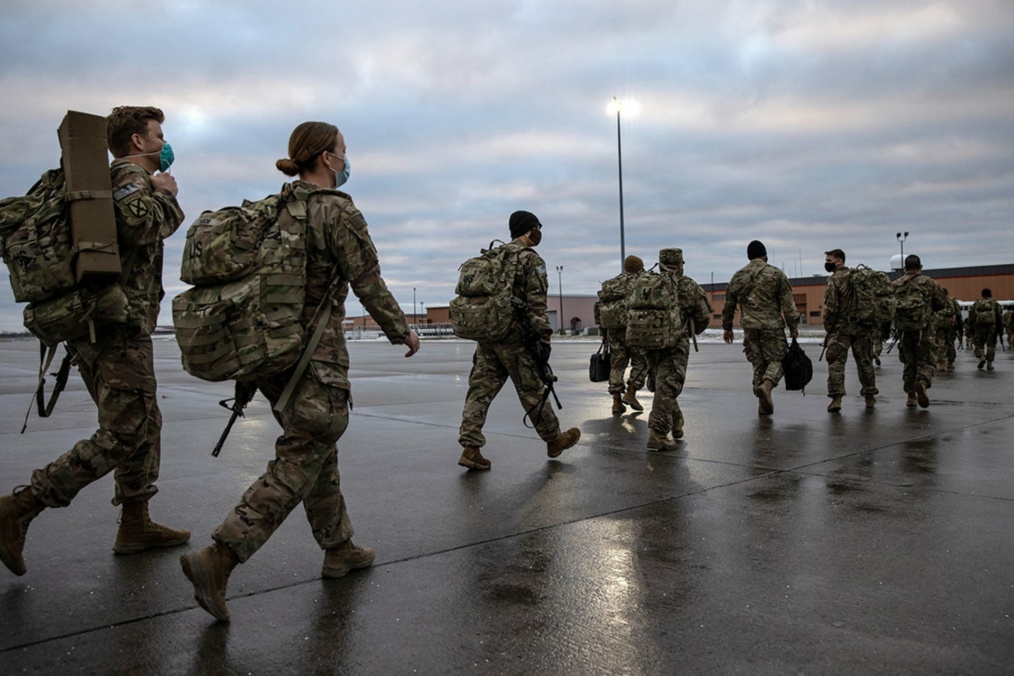
Neglecting Afghanistan: Lessons to be Learnt From the 9/11 Attacks 20-Years Later
Exactly two decades ago, the United States witnessed a deadly attack that transformed the international security landscape overnight. Only six weeks following the attacks, the Patriot Act was passed by Congress in an attempt to catch ‘terrorists among us,’ on both an international and domestic scale. Consequently, then US President George Bush launched the global War on Terror. This resulted in a 20-year war in Afghanistan, led by US coalition forces which cost the US over $6.4 trillion dollars.
It is believed that if US intelligence had been able to puzzle the pieces together sooner the attacks – which claimed the lives of almost 3,000 individuals – could have been prevented. This may have likely been the case, had the US not turned their backs on Afghanistan only 10-years earlier in the 1990s.
Cold War Origins
Following the Soviet Union’s invasion of Afghanistan in 1979, US forces began to engage in Afghanistan by proxy. Through Pakistani intelligence services, then President of the United States, Ronald Reagan, initiated a programme to arm the mujahedeen. In 1981, Operation Cyclone became the largest covert operation, which saw the US supply money and weapons to the mujahedeen. In total, it is estimated that the operation cost approximately $3bn US dollars.
Only 8-years later, politically, socially and mentally drained, the Soviet Union gave up on Afghanistan. In the Geneva Accords, signed in 1988, the US agreed to cease funding to the mujahedeen whilst the Soviet Union agreed to withdraw from Afghanistan completely. Only three years later, the Afghanistan government had collapsed. The country was subsequently enveloped in a civil war between the older mujahedeen factions. As a result, the Taliban quickly gained power, whose interpretation of Islamic sharia laws made life repressive and brutal for various women, opponents and ethnic/religious minorities.
The political climate in Afghanistan leading up to the attacks was a result of both the US and Soviet Union abandoning their foreign policy in the Middle East. As the Soviet Union Ambassador recognised, “We meddled in Afghanistan, and then we stopped paying attention.” Only 10-years later, al-Qaeda orchestrated the deadliest terrorist attack in history on American soil. The group’s involvement with Afghanistan was brought to light in the weeks following the attacks. From 1996-2001, then leader of the Taliban, Mohammed Omar, had developed close ties with Bin Laden as he plotted the deadly attacks.
9/11 stands as a stark reminder that for policymakers, walking away from the problem is not the solution. Instead, it can exacerbate existing issues and create significant security risks. In light of this, it is imperative that policymakers do not repeat the same mistakes 20-years later.
Two Decades Later
The Taliban have a poor track record of sticking to their promises, often stating one thing then doing another. In turn, they promise actions but do not follow through. Currently, the US has placed a great deal of faith in the Taliban. Whilst the group has advocated that they will not harbour terrorists, they still maintain a close relationship with al-Qaeda. Consequently, many of the new leaders announced in Afghanistan’s interim government have former ties to the group.
If the Taliban are not monitored closely, US national security may face severe security threats in the near future. It is a prominent possibility that under Taliban control, radical Islamist terrorism could resurge, with attacks aimed at democratic societies. The 9/11 attacks should act as a forceful reminder, that US citizens safety is not guaranteed if the Taliban are allowed to operate on their own terms.
Intelligence
Afghanistan’s fall to the Taliban is an indicator that US intelligence needs revising. The Biden administration hugely underestimating the magnitude and speed of the Taliban’s ability to conquer cities and towns across Afghanistan. As Richard Fonataine from the Centre for a New American Security recognised, “the key miscalculation was the assumption that the US would have the luxury of time.”
This is not the first time that American intelligence has failed to predict and prevent such security failures. Prior to the 9/11 attacks, the US Department of Defence failed to recognise the magnitude of the threat from al-Qaeda. In 1997, the US intelligence community regarded Bin-Laden as a financier of terrorism, but not as a leader himself. Domestically, the FBI had little to no knowledge of the broader national security risks. Those working on counterterrorism strategies did so in spite of limited intelligence, which was worsened by legal barriers between both the CIA and FBI in intelligence sharing. If both organisations were able to do so, a comprehensive picture of al-Qaeda’s strategic framework may have been uncovered and disrupted.
The US must engage and have a prominent diplomatic presence in Afghanistan, with intelligence that focuses strongly on the region. If not, an attack comparable to the magnitude of the ones witnessed on 9/11 may be a dominant possibility.
The Future of Afghanistan
The Taliban’s ideology has not fundamentally changed. However, their strategy has. Instead, the Taliban are engaging in a much more persuasive game of psychological warfare. The lessons learnt from the Soviet withdrawal in 1989, demonstrate that neglecting Afghanistan can have grave consequences for international security. The US must ensure they have a strong diplomatic presence in Afghanistan, with adequate intelligence closely monitoring the political landscape in the upcoming months.
